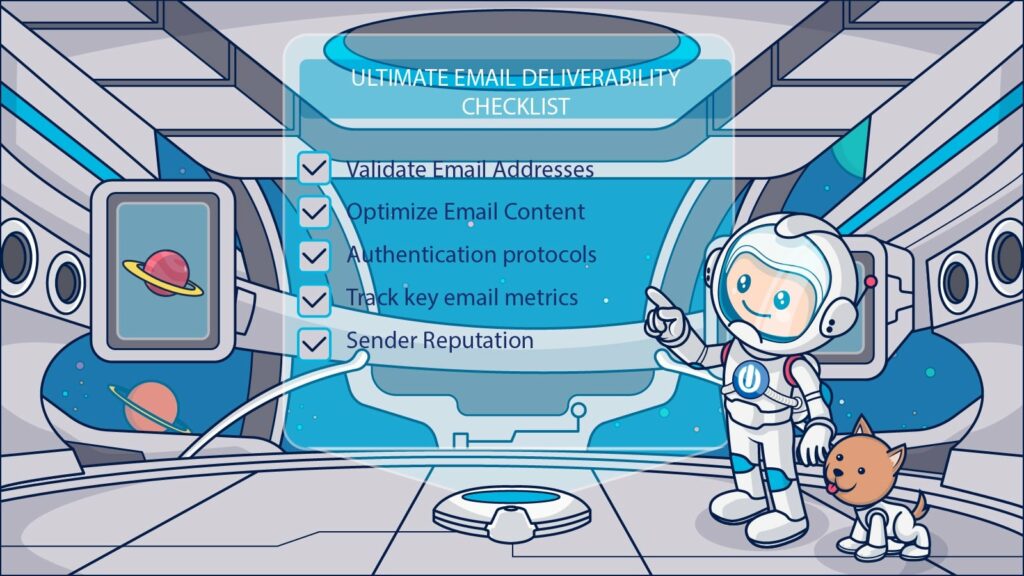A spamtrap is something used by ISPs (Internet Service Providers) to identify and filter-out spam emailers. It’s a way to test your email list hygiene best practices.
How do spamtraps work?
When an email is sent to a spamtrap, it demonstrates to the ISPs that the sender could be a potential spammer. This is because the ISPs know that the email address in question is either:
A) an old email address which is no longer in use (and therefore should be removed from your lists) known as a recycled spamtrap
or;
B) an email address that’s been set-up with the sole purpose of catching email senders out, known as a pure spamtrap (the worst kind for your sender reputation!)
Continuous sending to spam traps indicates that you either don’t keep on top of your mailing list hygiene regularly enough, or that you may have collected some of the email addresses that you’ve sent via a non-best-practice method.
Spamtrap examples include email addresses that are spelled incorrectly (think @hotnail instead of @hotmail), ones that are old, recycled or even completely invalid – i.e. fake.
For a comprehensive list of the different kind of spam traps, take a read of this blog by Laura Atkins of Word to the Wise.
How to avoid spamtraps: our top 3 methods
The negative impact on your email marketing sender reputation caused by a spamtrap can be pretty serious. The best way to avoid this all together is to maintain a clean, healthy mailing list in order to completely trust the email addresses you’re sending to.
To help you focus on this, here are our top tips for a clean and healthy email database:
1. Avoid buying data lists
Buying data is bad. It’s easy, cheap and gets you to higher subscriber numbers a lot more quickly than if you were to go the more traditional route. But, the truth is – you’ll pay the price in the long-run.
Instead, focus on growing your lists organically by building your email strategy around list growth and data collection. Use a mixture of online and offline methods as well as prompts around your website to encourage your customers and website visitors to subscribe to your communications. You can also use tactics like re-engagement programmes to bring old customers back into the loop.
2. Run a tight ship when it comes to opt-ins
Using a double opt-in method is absolutely best-practice when it comes to your email subscription, as it let’s you double check that the email address being added to your list belongs to a real-life human being before it’s sent to.
Validating email addresses in this way before you add them to your mailing lists is a fool-proof way of avoiding spamtrap addresses that try to get onto your lists ‘organically’, and demonstrates to ISPs that you’re using an extra layer of security to verify the data you’re collecting.
As well as the above benefits, using a double opt-in system also enables you to filter out any misspells or incorrect details from your data, such as elements you’ll use in your email personalization. You can also add elements like captcha to your sign-up forms to add to this security if you want to be totally sure.
3. Maintain good list hygiene
Maintaining good mailing list hygiene is best practice in email marketing, and involves a range of tactics that you can use regularly to ensure you’re keeping abreast of your mailing list’s health.
Methods involve; ensuring you aren’t sending to unengaged or inactive subscribers, being sure to remove any unsubscribes immediately after the request is submitted, and deactivating bounced email addresses before they have the chance to be developed into a spamtrap.
Allocate time periodically as an opportunity to refresh your mailing lists and make sure you don’t transfer over any old, unnecessary contact data. Creating suppression lists when jumping from ESP to ESP will also ensure you keep track of who you shouldn’t be sending to.
Conclusion
It’s important to note that spamtraps aren’t out there to hunt you down or catch you out if you’re one of the good guys. They only exist to filter out the bad guys, which makes it easier for us good senders to co-exist and succeed. Stay on the right side of the email marketing world and you’ll be free and clear!
Remember that your email marketing strategy is a marathon and not a sprint. Sending consistently will drive engagement and increase your subscribers numbers in an organic fashion, which will see you succeed in the long run.
To find out more on email deliverability, check out our comprehensive guide!














